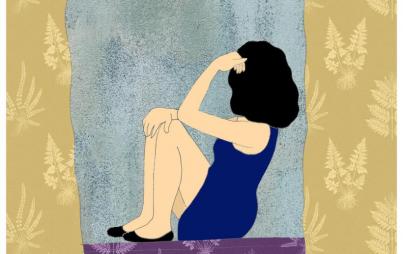
Credit: ThinkStock
Try this fashion innovation on for size: a nail polish that changes color when dipped in a drink tainted by either GHB, Xanax or Rohypnol—all prominent date rape drugs. Even more notable? This scientific style wonder is being developed by a group of four dudes, and they’re undergraduate students to boot.
That’s right, the team behind this product-in-the-works—Ankesh Madan, Stephan Gray, Tasso Von Windheim and Tyler Confrey-Maloney—are all seniors at North Carolina State University. And somehow, between all the homework assignments, finals and requisite college binge-eating of pizza, this foursome squeezed in time to create Undercover Colors—what they’ve dubbed to be “the first fashion company working to prevent sexual assault.”
So what prompted such an endeavor? According to Uncover Colors’ Facebook page:
In the U.S., 18% of women will be sexually assaulted in their lifetime. That's almost one out of every five women in our country. We may not know who they are, but these women are not faceless. They are our daughters, they are our girlfriends, and they are our friends.
While date rape drugs are often used to facilitate sexual assault, very little science exists for their detection. Our goal is to invent technologies that empower women to protect themselves from this heinous and quietly pervasive crime.
It’s an interesting concept—and of course we’re on board for any tool designed to help combat sexual assault. And of course we want to support dudes who are a.) aware of rape culture and b.) invested enough in combating it to forego nights of beer pong and Netflix viewing to develop this kind of product.
The innovators also say that they “hope to make potential perpetrators afraid to spike a woman’s drink because there’s now a risk that they can get caught. In effect, we want to shift the fear from the victims to the perpetrators.”
In our egregiously victim-shaming-tastic culture (ahem, dude from Stanford who just compared drunken rape to an un-locked bike getting stolen . . . we just cannot), we’re stoked about any shift of fear from victim to perpetuator. And clearly these NC State students’ hearts are in the right place. But . . .
Is Nail Polish Really The Answer?
Though detecting date rape drugs would be an incredible tool (science, you are cool), would not the onus still be on the woman to purchase said nail polish, apply it, and then remember to test drinks with it? And what if this little nail polish went huge—given how sexual assault cases tend to go in this country, it’s hard not to hear the cynical little voice in the back of our heads wondering if women would be asked in court why they weren’t donning this polish, as part of the standard bullshit questioning about what they were wearing, why they were drinking, etc. A part of us can't help but wish that these students would divert all the time and energy they've been investing into nail polish into discussing the issue of sexual assault with everyone they know instead.
Maybe we're jaded. But then again, it’s hard not to be when just this week news broke of a serial rapist police officer who sexually assaulted multiple women on duty—including at traffic stops. And then there was the serial rapist who used dating sites to find women to assault, feeling somewhat secure they would not go to police given the shame he expected them to feel. Plus the convicted Steubenville rapist is back playing football . . .
Our point? Sexual assault is a prominent issue in our society. And given that 97% of rapists never spend a day in jail, well, our criminal justice system is clearly flawed in its dealing with it. So we appreciate the effort, dudes, and we certainly think your invention is cool. But it's going to take a lot more than nail polish to fix what's broken in our culture on this issue.






